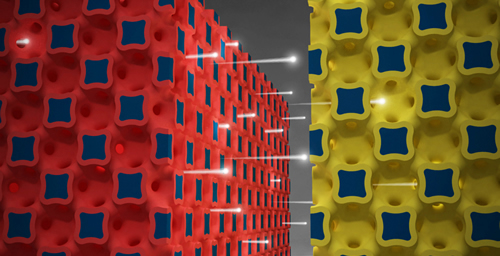Smartphone batteries could last for days, charge instantly


Future smartphone batteries could be ten times more powerful than today's technology, allowing for devices that run for days instead of hours and charge instantaneously.
A team of scientists from the University of Illinois, Urbana said on Tuesday that it had created lithium ion "microbatteries" that have an energy density 2000 times greater than existing microbatteries and equal to today's "best supercapacitors." This was accomplished by condensing and combining components on a microscale with what the researchers call "bicontinuous interdigitated microelectrodes."
In plain English: "This is a whole new way to think about batteries," said lead researcher William P. King. "A battery can deliver far more power than anybody ever thought. In recent decades, electronics have gotten small. The thinking parts of computers have gotten small. And the battery has lagged far behind. This is a microtechnology that could change all of that. Now the power source is as high-performance as the rest of it."
The researchers say that another practical benefit is extending the range of radio signals (such as those used in some consumer electronics) 30 times farther. Other applications include medical devices, lasers and sensors. A cell phone battery would be powerful enough to jumpstart a car, so jumper devices could become dramatically smaller.
When or if these batteries come to market is the big unknown. The researchers are tackling the problem of manufacturing them at a low enough cost to be commercially viable and embedding the batteries into electronics. A potential challenge is the possibility for self-combustion, University of Oxford chemist Peter Edwards told the BBC, which has negatively impacted the safety of current batteries. Of course, other researchers are also vying to build a better battery.
In late 2011, Massachusetts Institute of Technology revealed an energy storage breakthrough that could one day make batteries more commercially competitive with gasoline. Its scientists dramatically increased the energy density in lithium-air (or lithium-oxygen) batteries with the introduction of carbon nanotubes.
Some additional coverage of advancements in research can be found in the related links section below.
(image credit: University of Illinois)
Related on SmartPlanet:
- 300 mile battery could slash EV costs in half
- MIT battery breakthrough gains on gasoline
- BMW, Toyota partner on lithium ion battery
- Nanotubes development could double battery life
This post was originally published on Smartplanet.com